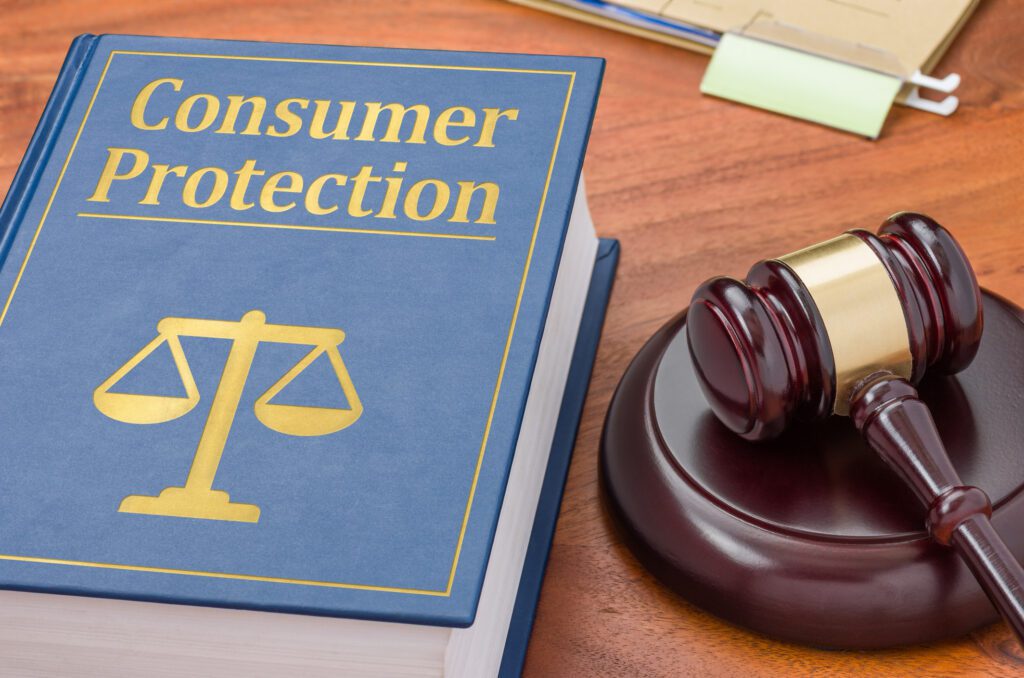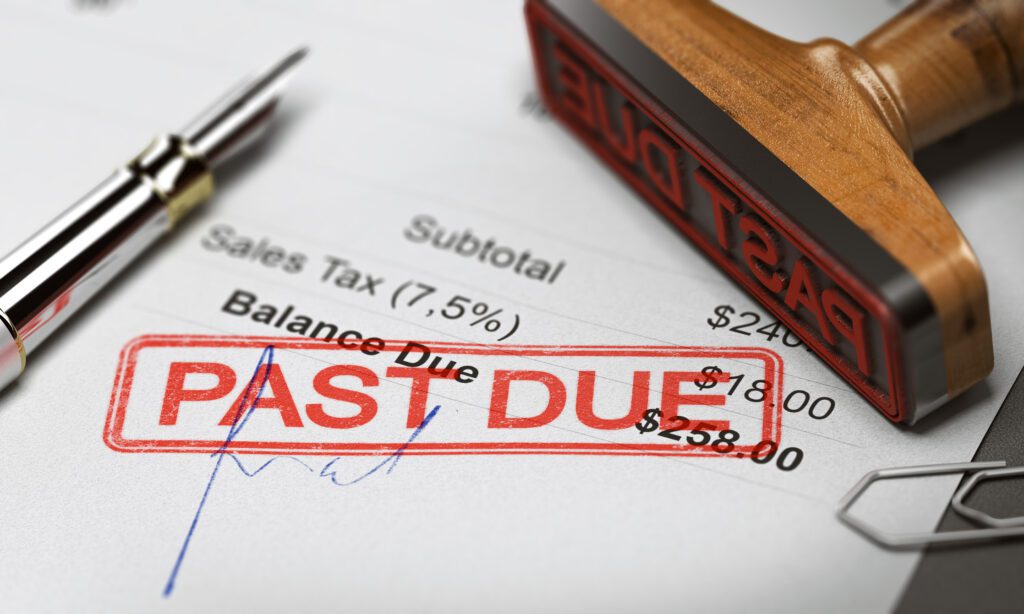Zebersky Payne Shaw Lewenz is a boutique litigation and trial law firm that handles almost exclusively high-stakes litigation matters. Though its flagship office is in Fort Lauderdale, Florida, Zebersky Payne Shaw Lewenz handles complex commercial litigation, class actions, consumer protection litigation, personal injury, and wrongful death matters across the United States and the world.
Consumer Litigation
Zebersky Payne Shaw Lewenz’s Consumer Litigation Team has unmatched experience representing clients in actions to enforce or defend federal and state consumer protection laws. Because of their knowledge and success in this sophisticated area, the firm and its lawyers are regularly sought after to represent public companies, private companies, and individuals in state and federal courts across the country.
Zebersky Payne Shaw Lewenz’s Consumer Litigation Team can assist with cases involving:
- Florida Consumer Collection Practices Act (“FCCPA”)
- Florida Deceptive & Unfair Trade Practices Act (“FDUTPA”)
- The Fair Credit Reporting Act (“FCRA”)
- Real Estate Settlement Procedures Act (“RESPA”)
- Truth In Lending Act (“TILA”)
- The Fair And Accurate Transactions Act (“FACTA”)
- Fair Debt Collection Practices Act (“FDCPA”)
- Florida Consumer Collection Practices Act (“FCCPA”)
- Telephone Consumer Protection Act (“TCPA”)
- Florida’s Mini TCPA (501.059)
- Insurance Balance Billing
- Improper Medical Billing or Charges
- Excessive Fees, Interest, or Charges
- Illegal Fees, Interest, or Charges
- Undisclosed Fees, Interest, or Charges
- Usury
- Deceptive or Unfair Fees, Interest, or Charges
- Condominium Fees
- Improper Liens
- Identity Theft
- Improper Credit Reporting
- Improper Payoff Fees
- Improper Reinstatement Fees
- Improper Mortgage Fees
- Other consumer related issues

Zebersky Payne Shaw Lewenz’s Consumer Litigation Team has unmatched experience representing clients in actions to enforce or defend federal and state consumer protection laws. Because of their knowledge and success in this sophisticated area, the firm and its lawyers are regularly sought after to represent public companies, private companies, and individuals in state and federal courts across the country.
Zebersky Payne Shaw Lewenz’s Consumer Litigation Team can assist with cases involving.
CONSUMER LITIGATION
Florida Consumer Collection Practices ACT (“FCCPA”)
The Florida Consumer Collection Practices Act (FCCPA) is a Florida statute that regulates all individuals and companies who are attempting to collect monies owed. This includes, without limitation, medical bills, product invoices, credit card bills, and mortgage statements, whether current or past due. All businesses that attempt to collect amounts owed from consumers must comply with the FCCPA. The FCCPA provides for statutory damage awards of up to $1,000.00 in individual consumer lawsuits and up to $500,000.00 in consumer class action lawsuits, plus reimbursement of any actual damages caused by the violation, and an award of attorneys’ fees and litigation costs.
Common violations include:
- Charging amounts that are not owed, unauthorized, unaccrued, or illegal
- Billing a consumer who is represented by counsel
- Charging for amounts that should have been or were in-fact paid by insurance
- Charging “Estimated Fees”
- Contacting a consumer’s workplace to collect a debt
Common violators include:
- Banks and Mortgage Servicers
- Debt Collectors
- Car Dealerships
- Doctors and Clinic
Florida Unfair and Deceptive Trade Practices Act (“FDUTPA”)
Florida’s Deceptive and Unfair Trade Practices Act (FDUTPA), is likely the broadest consumer protection statute discussed on this page. It is intended to protect consumers and businesses enterprises from unfair methods of competition or unconscionable, deceptive, or unfair acts. A deceptive practice is broadly defined and includes any act or action that is likely to mislead consumers, offend public policy, or is immoral, unethical, oppressive, unscrupulous or substantially injurious to consumers.
Common violations include:
- Misleading Advertisements
- Fraudulent or hidden fees or charges
- Bad faith contracting
- Generally misleading acts
Common violators include:
- All types of businesses and individuals
The Fair Credit Reporting Act (“FCRA”)
The FCRA is a federal statute enacted to promote the accuracy, fairness, and privacy of consumer information reported by consumer reporting agencies. The FCRA also regulates the collection, dissemination, and use of consumer information. All companies or individuals who report delinquent or pending debts to the various reporting agencies must be cognizant of and abide by the FCRA’s strict regulations. If a consumer can demonstrate that the credit reporting agency, information furnisher, or entity using the information willfully violated its obligations under the FCRA, the consumer may be entitled to recover damages.
Common violations include:
- Publishing illegitimate or excess debts
Common violators include:
- Banks and Mortgage Servicers
- Debt Collectors
Real Estate Settlement Procedures Act (“RESPA”)
The Real Estate Settlement Procedures Act (RESPA) is a federal statute enacted to govern the real estate transactions by requiring that lenders fully inform borrowers about all closing costs, lender servicing and escrow account practices, business relationships between closing services providers and other parties to the transaction. RESPA governs purchase loans, assumptions, refinances, property improvement loans, payoffs, reinstatements, and equity lines of credit.
Common violations include:
- Charging “estimated fees”
- Charging excess or unauthorized fees
- Taking profits or kickbacks from pass-through charges
Common violators include:
- Banks and Mortgage Servicers
Truth in Lending Act (“TILA”)
The Truth in Lending Act (TILA) is a federal law enacted to ensure that consumers are informed in all consumer credit transactions and instruments. Consumer credit transactions include credit cards, mortgages, car loans, equipment loans, and any other transaction where credit is extended to a consumer. TILA requires disclosures about the terms of the transaction and the fees associated with borrowing.
Common violations include:
- Charging “estimated fees”
- Charging excess or unauthorized fees
- Taking profits or kickbacks from pass-through charges Common violators include:
- Banks and Mortgage Servicers
The Fair and Accurate Transactions Act (FACTA)
The Fair and Accurate Credit Transactions Act (FACTA), is a federal statute designed and implemented to prevent identity theft, by limiting the disclosure of consumer information.
Common violations include:
- Printing more than the last five digits of a credit card on a receipt
- Printing a credit card’s expiration date on a receipt
Common violators include:
- All types of businesses who accept and process credit cards
DEBT COLLECTION
Because of the expanding body of law, consumers and companies alike should self-direct the question: Do I need a debt collection attorney? The response should be an astounding “yes.” A debt collector or company that regularly bills for monies owed, should have an experienced debt collection attorney to draft or review policies and procedures and to ensure compliance with the strict restrictions prescribed by the consumer statutes referenced above. Consumers, on the other hand, should understand their rights and, where appropriate hire a debt collection attorney to sue the debt collector or other commercial entity who violates the law.

As a result of increasing consumer litigation surrounding consumer statutes, the terms “debt collection attorney” or “debt collector attorney” have evolved into more than simply references to attorneys that collect debts or execute on judgments. The term now also refers to attorneys that sue debt collectors or defend debt collectors for violations of consumer protection laws. As a result, The term “debt collection defense” has also evolved. While “debt collection defense” was primarily used to describe the defense of consumers in debt collection matters, now “debt collection defense” or “consumer defense” are terms often used to in connection with lawyers who defend companies in consumer matters.
What Are the Debt Collection Statutes?
As technology advances, businesses and their debt collectors have infinite avenues through which to recoup monies they believe are owed. Today, creditors are able to send billing statements by the hundreds and generate automatic telephone dialing system (ATDS) calls or Robocalls by the thousands.
In response, federal and state legislatures have enacted statutes and regulations to level the playing field. These “consumer statutes” include the Fair Debt Collection Practices Act (FDCPA), the Telephone Consumer Protection Act (TCPA), and in Florida, the Florida Consumer Collection Practices Act (FCCPA).
Fair Debt Collection Practices Act (“FDCPA”)
The Fair Debt Collections Practices Act (“FDCPA”) is a federal consumer protection statute that regulates debt collectors, including banks, lenders, and mortgage servicers. The FDCPA was enacted to protect consumers and requires strict compliance. Violations may result in statutory damage awards of up to $1,000.00 in individual consumer lawsuits and up to $500,000.00 in class action lawsuits, plus reimbursement of any actual damages caused by the violation, and an award of attorneys’ fees and litigation costs.
Common violations include:
- Charging amounts that are not-owed, unauthorized, unaccrued, or illegal
- Failing to inform consumers that their debt is past the statute of limitations and they cannot be sued for it.
- Failing to inform consumers that making a payment on a debt can revive the statute of limitations.
- Billing a consumer who is represented by counsel
- Charging for amounts that should have been or were in-fact paid by insurance
- Charging “Estimated Fees”
- Contacting a consumer’s workplace to collect a debt
Common violators include:
- Banks and Mortgage Servicers
- Debt Collectors
- Car Dealerships
- Doctors & Clinics
Florida Consumer Collection Practices ACT (“FCCPA”)
The Florida Consumer Collection Practices Act (FCCPA) is Florida’s Act that encompasses and adds to the FDCPA. The Florida Consumer Collection Practices act APPLIES TO ALL INDIVIDUALS AND COMPANIES THAT TRY TO COLLECT A DEBT. In Florida, this act should be of the utmost concern to all businesses that are attempting to collect on debts, statements, or invoices to broaden the scope of protection for consumers—essentially, all businesses should strive to be in compliance with these debt collection state laws. The FCCPA is even more expansive than the FDCPA and, with a legal standard strongly favoring the consumer; it too offers consumer plaintiffs
The Florida Consumer Collection Practices Act provides for:
- Potential for statutory damages up to One-Thousand Dollars ($1,000.00) plus any actual damages the collector may cause;
- Potential for an award of attorneys’ fees and litigation costs.
How the FCCPA and FDCPA Debt Harassment Protections Apply to Consumer Debts
Importantly, FCCPA and FDCPA debt harassment protections apply to “consumer debts,” which are debts that arise from primarily for personal, family, or household activities. Individuals and organizations collecting such consumer debts must not engage in:
Debt Collection Letters or Bills: Debt collectors must, within five (5) days of their initial correspondence or collection attempt with a consumer, send that consumer written notice stating the following:
- the amount of the debt;
- the creditor to whom the debt is allegedly owed; and
- a notification that the consumer has thirty (30) days dispute the debt, in writing, or the debt will be assumed valid by the debt collector.
If the collector receives written notice of a debt dispute, the collector has thirty (30) days to obtain written verification and validation of the amount of debt and to whom it is owed. Until the collector sends validation information to the consumer, along with supporting documents or information, the collector may not contact the consumer or attempt to collect the debt.
Contact After FDCPA Attorney Representation: Once any company is notified that a consumer is represented by a debt collection attorney; all communication with that consumer must stop. Any communications about the debt should be discussed with the debt collection attorney. This issue is commonly encountered in the context of bankruptcy filings or personal injury lawsuits; hospitals or physician groups must not send consumers statements or bills if they have knowledge of a bankruptcy filing, personal injury lawsuit, or general representation pertaining to a debt.
 Zebersky Payne Shaw Lewenz, LLP’s FDCPA/ FCCPA, Debt collection attorneys are well versed in the regulations, limitations, and protections of the Fair Debt Collection Practices Act and the Florida Consumer Collection Practices Act. The firm has handled individual and class action cases involving: improper disclosures, improper identifications, debt collection harassment, debt harassment, billing during bankruptcy or while represented, and other FCCPA and FDCPA violations.
Zebersky Payne Shaw Lewenz, LLP’s FDCPA/ FCCPA, Debt collection attorneys are well versed in the regulations, limitations, and protections of the Fair Debt Collection Practices Act and the Florida Consumer Collection Practices Act. The firm has handled individual and class action cases involving: improper disclosures, improper identifications, debt collection harassment, debt harassment, billing during bankruptcy or while represented, and other FCCPA and FDCPA violations.
Debt Harassment: While there is no hardline definition for “harassing conduct,” there is a constantly expanding list of conduct including frequent phone calls to consumers, their families or friends; multiple calls per day or calls on back-to-back days; repeated calls with no messages; repeated calls with robotic or vague messages; hang-ups; the use of auto-dialers or robo-dialers; lies or misleading comments; speaking in a patronizing manner; and embarrassing, aggressive, and rude conduct.
Certain actions, however, are considered debt collection harassment or are otherwise prohibited under the Fair Debt Collection Practices Act and the Florida Consumer Collection Practices Act, for example:
Calls at Work: Calls to the consumer’s workplace constitute debt collection harassment and violate the FCCPA and FDCPA. This includes speaking with a co-worker or employer, calling the consumer’s cell phone at work, leaving messages regarding the debt, or calling the consumer’s direct line.
Contacting Others: Debt collectors should not contact other individual or organization about the debt of a consumer without the express consent of that consumer. This includes friends, employers or co-workers, and certain family members.
Cease and Desist: Debt collectors must immediately halt all communication with the consumer once the collector receives a “cease and desist” letter. There is no specific language required, only a directive that the consumer is no longer to be contacted.
Threats: A Debt collection agency or company, as well as original creditors, must avoid the use of threats in attempts to collect a debt. The law disallows threats of legal action; threats of arrest or criminal prosecution; threats of repossession of property, or threats to ruin credit. Unless the collector has the intention and legal ability to carry out these threats, it is illegal to engage in these behaviors.
Attempting to Collect Debts that Are Not Owed: Debt collectors, including banks, mortgage companies, collection agencies, or other financial institutions or creditors may not attempt to collect amounts exceeding the amounts to which they are owed. This includes late fees when the consumer has paid on time, penalties, higher interest rates, attorney costs, certain forced placed insurance or any other miscellaneous costs that are not part of the principal or interest of the debt.
Consumer Protection “Mini-Miranda”: In the initial communication, the debt collector must identify themselves as such to the consumer.
IDENTITY THEFT
What Is the Fair Credit Reporting Act (“FCRA”)?
The FCRA is a federal statute enacted to promote the accuracy, fairness, and privacy of consumer information reported by consumer reporting agencies. The FCRA also regulates the collection, dissemination, and use of consumer information. All companies or individuals who report delinquent or pending debts to the various reporting agencies must be cognizant of and abide by the FCRA’s strict regulations. If a consumer can demonstrate that the credit reporting agency, information furnisher, or entity using the information willfully violated its obligations under the FCRA, the consumer may be entitled to recover damages.

Common violations include:
- Publishing illegitimate or excess debts
Common violators include:
- Banks and Mortgage Servicers
- Debt Collectors
TELEPHONE CONSUMER PROTECTION ACT
The Telephone Consumer Protection Act (TCPA) is a federal act that provides very strong protections to consumers and very large consequences for violators. This includes calls using pre-recorded messages and voicemails, automated text and other unsolicited methods of contact. Potential Damage Awards of between $500.00 and $1,500 per violative call could be awarded. Zebersky Payne Shaw Lewenz, LLP’s consumer attorneys and TCPA attorney are well versed in the regulations, limitations, and protections of the Telephone Consumer Protection Act.
The firm has handled  individual and class action cases involving: debt harassment/debt collection harassment, regulatory/corporate compliance, autodialers, robocalls, telephone solicitation, telemarketers, general harassment, consent and lack of consent.
individual and class action cases involving: debt harassment/debt collection harassment, regulatory/corporate compliance, autodialers, robocalls, telephone solicitation, telemarketers, general harassment, consent and lack of consent.
The Telephone Consumer Protection Act (TCPA) act applies to any individual or corporation which collects, solicits, advertises, markets, or provides information using telephone calls.
Frequent violators of the Telephone Consumer Protection Act (TCPA) are debt collectors, or companies collecting debts in general, banks, finance companies, loan companies, and telemarketers.
The TCPA deals with several distinct issues:
- Automated dialing equipment (ATDS) a/k/a auto-dialers or predictive dialers
- Pre-recorded messages or robocalls
- Telemarketing calls using “live” callers
- Facsimile (fax) transmissions
- Artificial or Pre-recorded voices
- SMS text messages
- Debt harassment or Debt collection harassment
The term “Prior Express Written Consent” means:
- an agreement;
- in writing (can be electronic);
- bearing the signature (can be electronic) of the person called that clearly authorizes the seller to deliver or cause to be delivered to the person called advertisements or telemarketing messages using an automatic telephone dialing system or an artificial or prerecorded voice; and
- the telephone number to which the signatory authorizes such advertisements or telemarketing messages to be delivered
As a general statement: without proper “Prior Express Consent” telemarketing calls, unsolicited faxes, prerecorded calls and auto-dialed calls to cell phones are violations of the TCPA. Importantly, too, just because there is a live operator on the line, does not mean that there is not a violation of the TCPA; it is the method and technology by which the call was made that is determinative, i.e. was the call made using an automatic telephone dialing system (ATDS).
Common violations include:
- Repeatedly calling consumers’ cell phones to advertise for goods or services, without consumers’ consent or after consent has been revoked
- Repeatedly calling consumers’ cell phones to collect a debt, without consumers’ consent or after consent has been revoked
Common violators include:
- Banks and Mortgage Servicers
- Debt Collectors
- Cruise Companies
- Insurance Companies
- Telemarking Companies
- Department Stores
- Student Loan Services
The written agreement shall include a clear and conspicuous disclosure in forming the consumer signing that:
- By executing the agreement, such person authorizes the seller to deliver or cause to be delivered to the signatory telemarketing calls using an automatic telephone dialing system or an artificial or prerecorded voice;
- The consumer is not required to sign the agreement (directly or indirectly) or agree to enter into such an agreement as a condition of purchasing any property, goods, or services.
- If a consumer has previously provided his or her cell phone number to a creditor or provided express consent to a debt collector, or telemarketer, they can always revoke any prior consent to receiving calls; this can be done in writing or orally. The TCPA has the potential to result in significant damage awards to plaintiffs who prove violations or abusive tactics. The law was designed to protect consumers against not only debt collectors and debt harassment, but also solicitors, marketers, or advertisers who “won’t stop calling” to the point that becomes harassing to the consumer.
BOTTOM LINE
Disputes that start small often grow into complicated matters that involve multiple claims, multi-faceted issues, and dozens or even hundreds of parties. Our consumer law attorneys have years of experience in handling complex litigation in federal and state courts.
Contact us and schedule an appointment to discuss how we can help resolve your legal problem.
Fort Lauderdale Office
110 Southeast 6th Street
Suite 2900
Ft. Lauderdale, FL 33301, USA
Miami Office
19501 NE 10th Ave.
Suite 306
North Miami Beach, FL 33179, USA
(954) 989-7781
(954) 989-6333
(248) 246-1648 Massachusetts Office
(413) 667-2294
Hablamos Español and Nós Falamos Portugues




